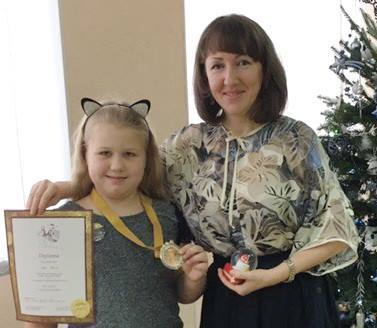Preparatory A (from 2+). Lesson 24

Your FREE Demo version is here
Your full version access is here
In our Pedagogy class today we are going to learn about the...
Mastery of praising.
If we create an abstract ideal image of a child, whatever a real person does will never be good enough.
The tradition of pointing out mistakes and criticizing literally everyone, including the “Best of the Best,” has lasted for centuries in music education. As the saying goes, "No one’s perfect." So, unfortunately, many parents spend too much time telling their kids just how imperfect they are.
It is common practice that we shower a child with our negative remarks after his recital: he didn’t play fast or slow enough, made rhythmical errors, didn’t have “proper” piano technique or articulation. There is an endless list of claims that music educators have passed down from generation to generation. This happens because the priority of musical education is to compare a performance to an internal, perfectly played piano piece and each generation of students comes across the same challenges over and over again. History repeats itself.
There is also another extreme in our modern days: some of us praise our children in general, just in case. This type of praising that is unspecific and insincere doesn’t offer any benefits to your child. You may call him/her a super talent, almost a genius, and suggest that more practice will create better results. Nevertheless, empty praise won’t help keep the child’s motivation going for very long.
In the Hiner Method, we pay a great deal of attention to the mastery of praising children properly. In fact, we consider these skills crucial for any family because proper evaluation involves assessing the level of the child’s personal motivation to study anything.
Your child must perform concrete actions to learn concrete pieces of music. He needs a concrete assessment of his results. Our goal is to help him to understand if he is on the right track. We also have to give him motivation to keep improving his results and enjoying his success.
Working with the Soft Mozart system is an easy way to learn how to compare the success of your child with his own previous successes and to give his performance a more specific, objective and realistic assessment. Moreover, your little toddler can learn how to evaluate himself easily by analyzing and comparing his scores from one performance to the next.
Your assessment should have the following qualities:
- It must be concrete
- It must be tied to specific, individual achievements
- It must be impartial and independent of the mood of the appraiser
- It must be focused on personal features of your child and not on an abstract ideal.
For example, if you tell over and over again, “Baby, you are doing great” – this will be a vague assessment that has no connection with your child's achievements. It is an impartial, impersonal and is not motivational assessment. Over time, from the endless repetition, it also loses any value to your child.
But if you say, “Baby, today you made 2 fewer mistakes, and your lag time was 5 seconds shorter. Let's try to play it again and see how it will improve”--this will be quite an effective and motivating assessment. The Hiner Method requires completely rethinking the personal evaluation of each child and of music in general. If each child is a priority, we should build our opinion on the original features of his/her progress and the peculiarity of his/her efforts. In the real world, for some children the ability to press a key with a different finger can already be a real and concrete achievement!
The ability to praise requires practice and care. During our recitals–Butterfly Ball or Graduation –teachers and parents praise hundreds of students without resorting to standard clichés. The ability to see the specific achievements of a child, to understand and assess the dynamics of a student’s development—this is the most important skill of a Soft Mozart educator.
For the development of this skill, our parents teachers are required to spend some time on the forum, see the largest possible number of videos, read the evaluations of other professionals and write a few responses. This practice helps you to understand how best to evaluate and praise kids of any age so the young players can achieve the best possible learning outcomes.
...
Keep practicing all of your exercises
...
Cards from Do, Re, Mi, Fa
Note Alphabet for 2-3 minutes
....
 GENTLE PIANO Favorite Classic 1 Bach Musette
GENTLE PIANO Favorite Classic 1 Bach Musette
Teach your child to play R, L or even both hands.
Keep practicing HCB and French song
....
At least 2 pictures and 1-2 videos of the listed activity will be counted towards your/your child's credits for graduation DIPLOMA. Please, upload the videos on You Tube, copy the address from the BROWSER window and past it in your Progress Diary. Don't forget to mention in the description of your photo/video Soft Mozart Academy, year and activity.
Sincerely yours,
Hellene Hiner
Video sample:
PS
All the lesson plans:
for 24 months to 3 year old
3 year old to 5 year old
5+ year old
Intensive Course for Adults-beginners
Always check here, if there any recital in the progress! You and your child will benefit a lot from the participation.
Your place to start your Diary is here

